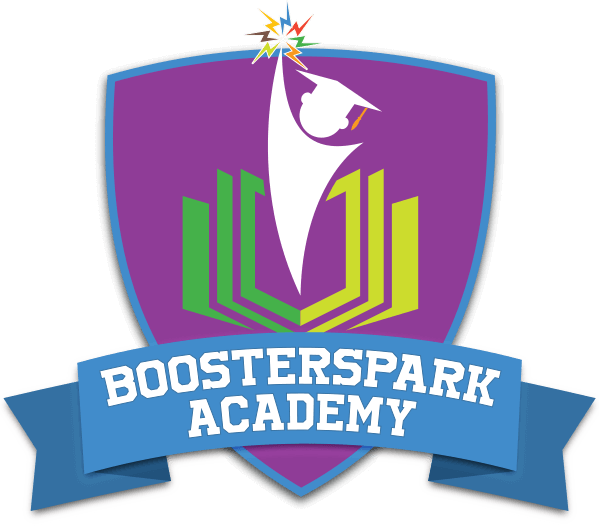 by Jim Connelly, founder of BoosterSpark
by Jim Connelly, founder of BoosterSpark

Over the years, I've been involved with a number of PTO's and booster clubs. I've seen small, underperforming, struggling clubs. And I've been fortunate to be a part of a large, thriving, successful club. All of these organizations were in the same ZIP Code. So why were some clubs super successful while others stayed small?
Well, board members usually receive no training and have no prior experience. That sets them up for failure. I'm sharing this list of common mistakes booster club leaders commonly make so you can avoid them.
Mistake #1: Thinking Small
The biggest mistake I see booster clubs make is: thinking small. Your team is going to spend valuable time working on club activities. You could spend that time working on small activities or big activities. Bigger activities have larger profit potential which means a larger amount of money for the school or team you support. Bigger doesn't have to mean "more difficult" or "complex."
If you and your team are each going to contribute 20 hours to planning an event, would you rather spend that time planning a bake sale that might only generate a couple hundred dollars, or a 5K race that raises thousands of dollars?
If you sell spirit wear, should you sell a low quality T-shirt for $10, or an attractive half-zip pullover for $50? You would have to sell five T-shirts to generate the same amount of gross income from one pullover. And here's the funny thing we've experienced: people are more interested in buying higher quality items. They are willing to pay higher prices for a better product.
To earn more revenue in the same amount of time, offer higher quality, higher priced items. Bonus tip: make sure you make at least a 50% margin on each item (a typical goal in retail). That means charging at least 2x what you paid (if your club pays $25 for a shirt, you must charge at least $50 for that item).
Mistake #2: Underpricing
Often, booster clubs underprice their products and services. They tend to think "not everybody can afford expensive stuff." That's true, but many people CAN afford higher priced items and won't flinch at spending more for quality. When you only offer them low priced items, you lose potential income.
Always offer an outrageously priced opportunity. For example, if you sell $200 sponsorships, add a new one at $500 or maybe even $1000. The worst thing that can happen is no one buys the top plan, and you've lost nothing. But when you offer, someone just might buy and dramatically increase the positive impact your volunteer labor can make.
Mistake #3: Customization
Avoid selling customized products. If you must sell personalized goods, find a way for the customer to work directly with the vendor and remove your volunteers from the process. When you sell personalized yard signs or spirit wear, your volunteers will spend a lot of time managing those orders; that's time volunteers could use in better ways. Also, with custom products there will be typos that upset customers, increase your labor, and depending on who caused the error you may have to eat the cost of the defective item, erasing your profit in the process.
One way to make the customer and vendor work directly with each other is to charge the vendor an advertising fee or a sponsorship fee. In exchange for the fee, (A) the vendor becomes the Exclusive Supplier of [insert product name here, such as "Official Bulldog Yard Signs"], (B) you agree to promote their customized product to your membership, (C) you direct customers to the vendor where they place orders, and (D) that is the extent of your responsibility. No order management labor, no risk exposure to typos.
Mistake #4: Not Having Paid Members
Booster clubs generate large sums every year by offering properly priced membership programs and benefits. Make sure your club offers well designed membership plan options, allows members to easily order online, acknowledges each member on your website, and uses software specifically designed for booster clubs to manage member data.
Mistake #5: Ignoring Business Donors
Local newspapers have virtually disappeared, leaving local businesses hungry for ways to advertise. Too many booster clubs have weak or nonexistent sponsorship programs. Create a robust sponsorship program stocked with a range of opportunities for local and national businesses, colleges, and organizations. Business sponsors are a great way to raise tens of thousands of dollars quickly. Let them advertise on a scoreboard at your school, or in your newsletter, or on your website, or sell the naming rights to your fundraising event (auction, 5K, etc). When you sell naming rights, include their logo on everything about the event (shirts, posters, advertising, etc) and have a banner at the event promoting and thanking the sponsor.
BoosterSpark offers a unique booster club sponsorship solution where businesses can buy a sponsorship on your BoosterSpark website and control a page on your site. Sponsors can edit their logo, photo gallery, company information, and company description on your website. This sponsorship program has the potential to make your BoosterSpark investment pay for itself!
Mistake #6: Not Having Insurance
Don't assume your school's insurance policy covers your club, staff, or activities. Your board members and coordinators are liable and can be sued if someone is injured at one of your events. Obtain liability insurance. It's not expensive, and you can find it easily online at places like R.V. Nucchio.
Mistake #7: Not Paying Sales Tax
Unless you are in a state that has zero sales tax, or your club is exempt from paying sales tax, your organization needs to pay sales tax on the goods you sell (such as spirit wear). Failure to pay sales tax can result in costly penalties and fines.
Mistake #8: Not Complying with Regulations
If you offer a raffle, you probably need to request a raffle license from your town many weeks prior to the raffle. If your club is a 501(c)(3) organization, it must file annual reporting to the IRS and probably your state. Failure to do so can result in expensive penalties and fines. If your club is not a 501(c)(3), it must pay taxes to the IRS. Becoming a 501(c)(3) can be expensive which is why thousands of clubs rely on ParentBoosterUSA for an inexpensive, professional solution.
What a New Booster Club President Should Know About Running a Booster Club
How to Manage a Booster Club
Preventing Booster Club Fraud & Theft






